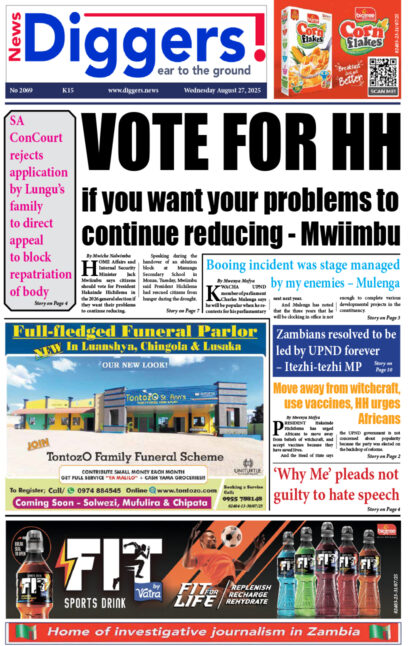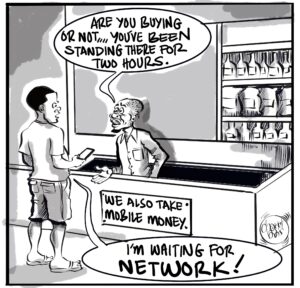In the bustling streets of Lusaka, vendors sell fried Vitumbuwa on every corner. Fast food chains are popping up across the country, promising convenience and indulgence. Modern habits, once seen as a sign of progress, are now silently fuelling a health crisis.
Diabetes—a condition often misunderstood and underestimated—is quietly spreading through Zambia, earning the grim title of a “silent epidemic.” Behind the statistics are real lives: mothers juggling work and family, fathers pushing through fatigue to provide, and young people experiencing symptoms they can’t explain.
It’s time to take a hard look at how our changing lifestyles are affecting our health—and why Zambia urgently needs a wellness revolution.
A Growing Crisis
Let’s start with the numbers. According to the International Diabetes Federation (IDF), Africa’s diabetes prevalence is projected to increase by 134% by 2045, with Zambia contributing significantly to this rise. The Zambia Demographic and Health Survey highlights an alarming trend: almost 10% of the adult population has diabetes or pre-diabetes, many without even knowing it.
This silent epidemic doesn’t discriminate. While Type 1 diabetes is an autoimmune condition that typically develops in childhood (not always), Type 2 diabetes—linked to lifestyle and diet—has become the dominant strain in Zambia, affecting people of all ages and backgrounds.
What’s fuelling this surge? Urbanization, fast food culture, and sedentary habits have combined to create a perfect storm for chronic illnesses like diabetes, hypertension, and obesity.
From Village to City: The Urbanisation Effect
Urban life has brought undeniable benefits: better access to education, infrastructure, and employment opportunities. But it’s also changed the way we eat, move, and live.
In rural Zambia, meals are traditionally home-cooked and rich in whole foods—vegetables, legumes, and unprocessed grains. The urban shift, however, has introduced calorie-dense, nutrient-poor convenience foods. A quick meal of fries and chicken may feel like a treat, but it comes at the cost of long-term health.
Add to this the decreased physical activity of city life—sitting behind desks, relying on public transport, and spending evenings glued to screens—and you have a recipe for rising blood sugar levels and expanding waistlines.
The Fast Food Trap
Fast food isn’t just an urban convenience; it’s a cultural shift. Marketing campaigns celebrate it as modern, accessible, and aspirational. Yet the reality is far from glamorous.
High in sugar, unhealthy fats, and refined carbs, fast food drives spikes in blood sugar, leading to insulin resistance over time. Consistent consumption not only increases diabetes risk but also contributes to heart disease and other chronic conditions.
Unfortunately, many of us aren’t aware of the connection between diet and disease. Sweetened beverages, for example, are a staple for many, yet just one can of soda contains enough sugar to exceed the daily recommended limit.
Global Trends vs. Local Realities
Globally, wellness has become a buzzword, with trends like plant-based diets, fitness apps, and mindfulness practices dominating headlines. But in Zambia, wellness seems to equate to the conclusion of needing expensive gym memberships or imported foods.
This disconnect leaves many without the tools to prevent or manage diabetes effectively. Healthcare access is another challenge. In rural areas, diabetes often goes undiagnosed until complications arise, such as nerve damage, blindness, or kidney failure. Even in urban centres, people face barriers like long waiting times, high costs, and limited access to diabetes specialists.
Why Zambia Needs a Wellness Revolution
The good news? This epidemic isn’t inevitable. By embracing a culture of wellness, Zambia can reverse the tide and prevent the next generation from being overwhelmed by chronic illness.
Here’s how we can start:
1. Education First
Knowledge is power. Many Zambians still associate diabetes with overeating sugar, failing to recognize the role of overall diet, physical activity, and genetics. Public health campaigns need to make this information accessible and culturally relevant.
2. Community-Based Solutions
Rural communities have long embraced cooperative approaches to farming and education. Why not extend this to health? Neighbourhood exercise sessions, vegetable picking at friends’ farms, and peer support groups can create grassroots change.
3. Accessible Healthy Food
Encouraging local farming of nutrient-rich crops, like millet and cassava, can make healthy eating affordable and accessible. Urban markets should also promote fresh produce over processed foods.
4. Workplace Wellness Programs
Employers can play a significant role by offering wellness incentives, from healthier cafeteria options to exercise breaks and routine health screenings.
5. Policy and Infrastructure
Government policies can drive change by taxing sugary beverages, regulating fast food advertising, and building public spaces for exercise. Diabetes screening should also become a mandatory part of routine medical check-ups.
The Cost of Doing Nothing
If we ignore this growing epidemic, the cost will be far greater than we imagine. Diabetes doesn’t just affect individuals—it impacts families, workplaces, and the economy. Productivity declines as people struggle with fatigue or complications, while healthcare systems buckle under the weight of treating advanced stages of the disease.
The ripple effects touch every aspect of society, from rising healthcare costs to decreased life expectancy.
A Call to Action
As someone who has lived with Type 1 diabetes for over 33 years, I know first-hand the challenges and triumphs of managing this condition. Diabetes doesn’t have to be a death sentence, but it does demand awareness, support, and proactive measures.
Zambia’s wellness revolution begins with each of us: the choices we make, the habits we build, and the conversations we have. It’s about more than just diabetes; it’s about reclaiming control of our health and ensuring a better future for our communities.
Change is possible—but it starts with recognizing the problem. Let’s stop ignoring the silent epidemic and start building a healthier, stronger Zambia.
Kaajal Vaghela is a wellness entrepreneur, sportswear designer, and diabetes health consultant with over three decades of lived experience managing Type 1 diabetes. As the chairperson of the Lusaka branch of the Diabetes Association of Zambia, she is a passionate advocate for breaking down myths and building awareness about diabetes. For any feedback, email [email protected]
























